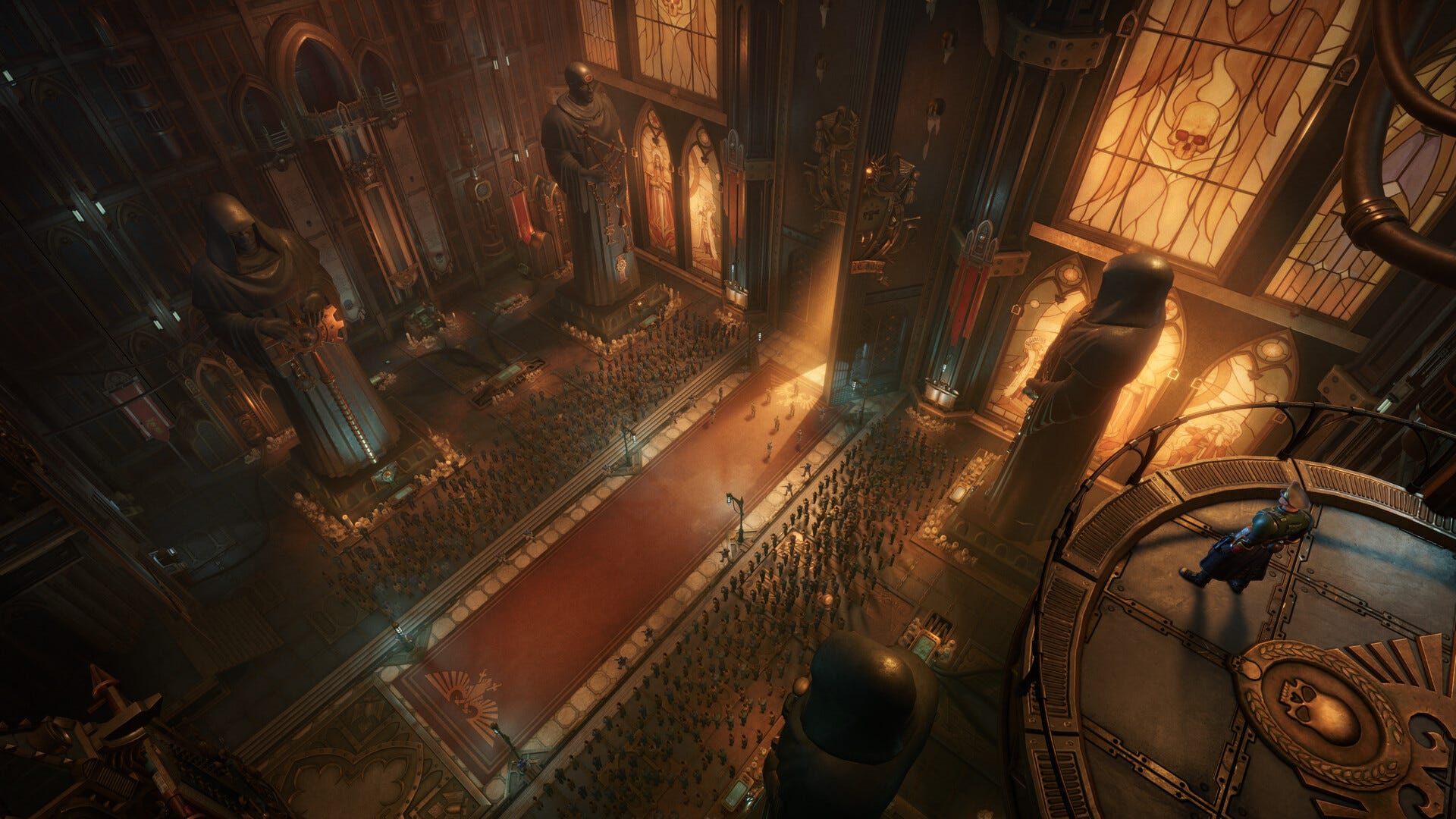
Warhammer 40,000: Rogue Trader is a game that I have been waiting a long time for. It's not quite the first 40k video game that I dreamed of - that'd be the Primarch fighting game my friends and I dreamed up at age 11 - but ever since getting over my youthful "wow, cool Space Marine" phase, I've wanted a 40k game that really gets into the finer details of the setting.
The Imperium, the form that human society takes in the grim darkness of the far future, is by far the best thing about 40k - but it's frequently obfuscated. 40k adaptations tend to either go all in on the action, or stick with the warfare and high level strategy of the tabletop game. On top of that, I suspect Games Workshop's need to market to children conflicts with how truly horrible the Imperium is. After all, it's much easier to get Little Timmy's Mum to splash out on toy soldiers when they're depicted as heroic defenders of humanity, instead of the brainwashed fascist enforcers they truly are. As a result, the darkly satirical elements of 40k tend to be buried in the novels and other ancillary media, making it all too easy to take the surface at face value.
Owlcat Games' Rogue Trader is based on the 2009 pen-and-paper RPG of the same name, which should come as no surprise; the studio made its own name with adaptations of the Pathfinder RPG. If you've played Kingmaker or Wrath of the Righteous, the broad strokes of Rogue Trader will be immediately familiar: a party-based CRPG that hews closely to the pen-and-paper original, combining a sprawling narrative with deep turn-based tactical combat. After creating your character, you'll play through an introductory section before being thrust into a position of power - one that conveniently allows for both agonising decision making and gallivanting about the place on adventures. The big difference this time is one of scale. 40k is all about maximalism, after all. Everything is bigger and badder and defined by an urge for more.
